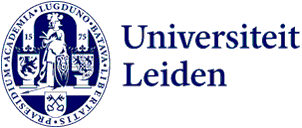
‘If you want to understand China, read what Chinese scholars are writing’
Contrary to what one might expect, societal actors influence China’s foreign policy. PhD candidate Sabine Mokry investigated how Chinese academics and think tanks impact the authoritarian leadership’s views on what constitutes the country’s national interest in the international arena. On 14 November 2023, she will defend her dissertation.
‘China is complicated’, says Sabine Mokry, external PhD candidate at Leiden University’s Institute of Political Science. ‘I have been fascinated by China for a long time. Between my bachelor’s and master’s I spent a year there. And in my previous job, as part of a German foreign policy think tank, I met a lot of interesting people working on China. That is where this project started.’
Domestic debate on which policies work best for China
‘Sure, China is under authoritarian rule, with Xi Jinping firmly at the helm of the Communist Party and the state apparatus. On the other hand, there is ample debate in Chinese society on which policies work best for the country. Including on my area of interest: foreign policy. On the surface, we see centralization, stronger ideological control, but if you look deeper, there is much more going on.’
Mokry explains: ‘Even authoritarian rulers need support, input.’ But how much input is welcome, which views are tolerable and which ideas are taboo, and what are the channels through which society can reach its leaders? ‘The evidence of how society and leadership interact is largely anecdotal; I wanted to come up with a more systematic, tested analysis.’

One of the most difficult aspects of the research project was formulating the research question. ‘I started asking how domestic politics in China affect foreign policy. That meant including media, public opinion, etcetera. This proved to be very difficult. Also because at the beginning of the project, I was working nearly full-time for a German foreign policy think tank.’ With this professional background in mind, Mokry narrowed the research down to the influence of domestic think tanks and scholars on China’s foreign policy.
100 official statements, over 500 policy reports, and approximately 2000 articles
‘It is, indeed, a misconception, that China’s leaders are ignorant of public opinion and that they do not care about the expertise of academics,’ Mokry established. ‘Having analysed about 100 official foreign policy statements, over 500 policy reports published by think tanks, and approximately 2000 articles published in Chinese academic journals, I can confirm this. But there is no such thing as a perfect “transmission belt” between the state policies on the one hand, and views of scholars and analysts on the other.’
Proximity to power and openness to input
‘What matters, is the distance between them’, Mokry continues. ‘“Proximity to power” is an important factor in explaining the impact, or lack thereof, of scholars and think tanks on the Party’s policies.’ Another outcome of Mokry’s research is that the extent to which China’s rulers are open to societal input tends to vary over time and across subjects. ‘The alleged Communist Party monopoly on ideology and policy in actual practice is far from linear, and black and white.’
Subtle nuances
After defending her dissertation, Mokry, currently a postdoc at Columbia University in New York, hopes to continue investigating China. ‘I am particularly interested in how the academic discipline of International Relations is changing in China. This may sound as a bit of a niche topic,’ Mokry realizes. ‘Yet, an important way of grasping what is happening in China is to read what their academics write. Of course, there is censorship. But, again, this differs. And it is these subtle nuances that tell us a lot about China and where the country is going.’
Close collaboration
Mokry’s take on the short term, the PhD defense? ‘Well, I am excited that the day finally comes. I am not overly nervous, yet. Rather, I look forward to discuss my findings and address the comments of the reviewers. And to meet again with my supervisors Daniel Thomas and Nicolas Blarel (Leiden University Institute of Political Science) and Daniela Stockmann (Hertie School in Berlin)! I owe them. Even though I have been an external PhD candidate, our collaboration was very close. They supported me along each and every step, even with personal life choices, of which there have been a few.’
